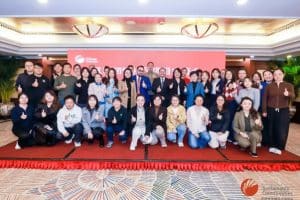The recent publicity over the ‘ice bucket challenge’, an act aimed both at raising funds for and increasing awareness of the rare disease amyotrophic lateral sclerosis (ALS), has taken China by storm, and has also cast the spotlight on China’s patchy medical laws in relation to patients with rare diseases. As a result, <a href=”http://chinadevelopmentbrief.org/DirectoryofNGOs/?p=1554″>Chinadolls</a>, a Chinese NGO specialized in providing services to patients with rare disorders, has received more than 1,4 million yuan in donation in two days (while they usually need at least six months to raise such an amount of money).
The World Health Organisation defines a rare disease as one which affects 0.65-1.0% of the total number of patients worldwide. About 6000 to 7000 diseases are internationally recognised as rare diseases, making up 10% of the total number of known diseases affecting humans. At present, there is no official definition of what a rare disease is in China, but using WHO standards, experts estimate the number of sufferers to be over 10 million. Patients with rare diseases often face difficulties in finding treatment drugs: domestic drug companies do not manufacture or import these drugs due to the lack of a profitable market, and those intending to import drugs often face huge regulatory barriers because of a lack of state inspection procedures. Those drugs that are successfully imported are hugely expensive, and as state subsidies are often not available, families cannot afford them and diseases go untreated. Further, patients are also frequently misdiagnosed with other diseases exhibiting similar symptoms.
Beijing University of Chinese Medicine’s Law School lecturer, Deng Yong, feels that legislators should look into drafting legislation aimed specifically at the prevention and treatment of rare diseases. He urges that the term ‘rare disease’ be clearly defined so that eligibility for state healthcare subsidies can be more easily determined. Besides this, he also hopes that a monitoring body can be set up to safeguard tax reductions on drugs and also to safeguard the exclusive rights of drug companies to sell the drugs they develop on the Chinese market.



